- Home
- Sarah J. Maas
A Court of Mist and Fury Page 30
A Court of Mist and Fury Read online
Page 30
And if I had to steal from him … perhaps that meant getting closer. “I do not remember you being quite so handsome Under the Mountain. The sunlight and sea suit you.”
A lesser male might have preened. But Tarquin knew better—knew that I had been with Tamlin, and was now with Rhys, and had now been brought here. Perhaps he thought me no better than Ianthe. “How, exactly, do you fit within Rhysand’s court?”
A direct question, after such roundabout ones—to no doubt get me on uneven footing.
It almost worked—I nearly admitted, “I don’t know,” but Rhys said from the table, as if he’d heard every word, “Feyre is a member of my Inner Circle. And is my Emissary to the Mortal Lands.”
Cresseida, seated beside him, said, “Do you have much contact with the mortal realm?”
I took that as an invitation to sit—and get away from the too-heavy stare of Tarquin. A seat had been left open for me at Amren’s side, across from Rhys.
The High Lord of the Night Court sniffed at his wine—white, sparkling—and I wondered if he was trying to piss them off by implying they’d poisoned it as he said, “I prefer to be prepared for every potential situation. And, given that Hybern seems set on making themselves a nuisance, striking up a conversation with the humans might be in our best interest.”
Varian drew his focus away from Amren long enough to say roughly, “So it’s been confirmed, then? Hybern is readying for war.”
“They’re done readying,” Rhys drawled, at last sipping from his wine. Amren didn’t touch her plate, though she pushed things around as she always did. I wondered what—who—she’d eat while here. Varian seemed like a good guess. “War is imminent.”
“Yes, you mentioned that in your letter,” Tarquin said, claiming the seat at the head of the table between Rhys and Amren. A bold move, to situate himself between two such powerful beings. Arrogance—or an attempt at friendship? Tarquin’s gaze again drifted to me before focusing on Rhys. “And you know that against Hybern, we will fight. We lost enough good people Under the Mountain. I have no interest in being slaves again. But if you are here to ask me to fight in another war, Rhysand—”
“That is not a possibility,” Rhys smoothly cut in, “and had not even entered my mind.”
My glimmer of confusion must have shown, because Cresseida crooned to me, “High Lords have gone to war for less, you know. Doing it over such an unusual female would be nothing unexpected.”
Which was likely why they had accepted this invitation, favor or no. To feel us out.
If—if Tamlin went to war to get me back. No. No, that wouldn’t be an option.
I’d written to him, told him to stay away. And he wasn’t foolish enough to start a war he could not win. Not when he wouldn’t be fighting other High Fae, but Illyrian warriors, led by Cassian and Azriel. It would be slaughter.
So I said, bored and flat and dull, “Try not to look too excited, princess. The High Lord of Spring has no plans to go to war with the Night Court.”
“And are you in contact with Tamlin, then?” A saccharine smile.
My next words were quiet, slow, and I decided I did not mind stealing from them, not one bit. “There are things that are public knowledge, and things that are not. My relationship with him is well known. Its current standing, however, is none of your concern. Or anyone else’s. But I do know Tamlin, and I know that there will be no internal war between courts—at least not over me, or my decisions.”
“What a relief, then,” Cresseida said, sipping from her white wine before cracking a large crab claw, pink and white and orange. “To know we are not harboring a stolen bride—and that we need not bother returning her to her master, as the law demands. And as any wise person might do, to keep trouble from their doorstep.”
Amren had gone utterly still.
“I left of my own free will,” I said. “And no one is my master.”
Cresseida shrugged. “Think that all you want, lady, but the law is the law. You are—were his bride. Swearing fealty to another High Lord does not change that. So it is a very good thing that he respects your decisions. Otherwise, all it would take would be one letter from him to Tarquin, requesting your return, and we would have to obey. Or risk war ourselves.”
Rhysand sighed. “You are always a joy, Cresseida.”
Varian said, “Careful, High Lord. My sister speaks the truth.”
Tarquin laid a hand on the pale table. “Rhysand is our guest—his courtiers are our guests. And we will treat them as such. We will treat them, Cresseida, as we treat people who saved our necks when all it would have taken was one word from them for us to be very, very dead.”
Tarquin studied me and Rhysand—whose face was gloriously disinterested. The High Lord of Summer shook his head and said to Rhys, “We have more to discuss later, you and I. Tonight, I’m throwing a party for you all on my pleasure barge in the bay. After that, you’re free to roam in this city wherever you wish. You will forgive its princess if she is protective of her people. Rebuilding these months has been long and hard. We do not wish to do it again any time soon.”
Cresseida’s eyes grew dark, haunted.
“Cresseida made many sacrifices on behalf of her people,” Tarquin offered gently—to me. “Do not take her caution personally.”
“We all made sacrifices,” Rhysand said, the icy boredom now shifting into something razor-sharp. “And you now sit at this table with your family because of the ones Feyre made. So you will forgive me, Tarquin, if I tell your princess that if she sends word to Tamlin, or if any of your people try to bring her to him, their lives will be forfeit.”
Even the sea breeze died.
“Do not threaten me in my own home, Rhysand,” Tarquin said. “My gratitude goes only so far.”
“It’s not a threat,” Rhys countered, the crab claws on his plate cracking open beneath invisible hands. “It’s a promise.”
They all looked at me, waiting for any response.
So I lifted my glass of wine, looked them each in the eye, holding Tarquin’s gaze the longest, and said, “No wonder immortality never gets dull.”
Tarquin chuckled—and I wondered if his loosed breath was one of profound relief.
And through that bond between us, I felt Rhysand’s flicker of approval.
CHAPTER
33
We were given a suite of connecting rooms, all centered on a large, lavish lounge that was open to the sea and city below. My bedroom was appointed in seafoam and softest blue with pops of gold—like the gilded clamshell atop my pale wood dresser. I had just set it down when the white door behind me clicked open and Rhys slid in.
He leaned against the door once he shut it, the top of his black tunic unbuttoned to reveal the upper whorls of the tattoo spanning his chest.
“The problem, I’ve realized, will be that I like Tarquin,” he said by way of greeting. “I even like Cresseida. Varian, I could live without, but I bet a few weeks with Cassian and Azriel, and he’d be thick as thieves with them and I’d have to learn to like him. Or he’d be wrapped around Amren’s finger, and I’d have to leave him alone entirely or risk her wrath.”
“And?” I took up a spot against the dresser, where clothes that I had not packed but were clearly of Night Court origin had been already waiting for me.
The space of the room—the large bed, the windows, the sunlight—filled the silence between us.
“And,” Rhys said, “I want you to find a way to do what you have to do without making enemies of them.”
“So you’re telling me don’t get caught.”
A nod. Then, “Do you like that Tarquin can’t stop looking at you? I can’t tell if it’s because he wants you, or because he knows you have his power and wants to see how much.”
“Can’t it be both?”
“Of course. But having a High Lord lusting after you is a dangerous game.”
“First you taunt me with Cassian, now Tarquin? Can’t you find other ways to annoy me?”
I wasn’t some simpering fool. I knew the risks. And that tone, that look he always gave me … “Anything?” His brows rose. I breathed, “If I fucked him for it, what would you do?”
His pupils flared, and his gaze dropped to my mouth. The wood dresser groaned beneath his hands. “You say such atrocious things.” I waited, my heart an uneven beat. He at last met my eyes again. “You are always free to do what you want, with whomever you want. So if you want to ride him, go ahead.”
“Maybe I will.” Though a part of me wanted to retort, Liar.
“Fine.” His breath caressed my mouth.
“Fine,” I said, aware of every inch between us, the distance smaller and smaller, the challenge heightening with each second neither of us moved.
“Do not,” he said softly, his eyes like stars, “jeopardize this mission.”
“I know the cost.” The sheer power of him enveloped me, shaking me awake.
The salt and the sea and the breeze tugged on me, sang to me.
And as if Rhys heard them, too, he inclined his head toward the unlit candle on the dresser. “Light it.”
I debated arguing, but looked at the candle, summoning fire, summoning that hot anger he managed to rile—
The candle was knocked off the dresser by a violent splash of water, as if someone had chucked a bucketful.
I gaped at the water drenching the dresser, its dripping on the marble floor the only sound.
Rhys, hands still braced on either side of me, laughed quietly. “Can’t you ever follow orders?”
But whatever it was—being here, close to Tarquin and his power … I could feel that water answering me. Feel it coating the floor, feel the sea churning and idling in the bay, taste the salt on the breeze. I held Rhys’s gaze.
No one was my master—but I might be master of everything, if I wished. If I dared.
Like a strange rain, the water rose from the floor as I willed it to become like those stars Rhys had summoned in his blanket of darkness. I willed the droplets to separate until they hung around us, catching the light and sparkling like crystals on a chandelier.
Rhys broke my stare to study them. “I suggest,” he murmured, “you not show Tarquin that little trick in the bedroom.”
I sent each and every one of those droplets shooting for the High Lord’s face.
Too fast, too swiftly for him to shield. Some of them sprayed me as they ricocheted off him.
Both of us now soaking, Rhys gaped a bit—then smiled. “Good work,” he said, at last pushing off the dresser. He didn’t bother to wipe away the water gleaming on his skin. “Keep practicing.”
But I said, “Will he go to war? Over me?”
He knew who I meant. The hot temper that had been on Rhys’s face moments before turned to lethal calm. “I don’t know.”
“I—I would go back. If it came to that, Rhysand. I’d go back, rather than make you fight.”
He slid a still-wet hand into his pocket. “Would you want to go back? Would going to war on your behalf make you love him again? Would that be a grand gesture to win you?”
I swallowed hard. “I’m tired of death. I wouldn’t want to see anyone else die—least of all for me.”
“That doesn’t answer my question.”
“No. I wouldn’t want to go back. But I would. Pain and killing wouldn’t win me.”
Rhys stared at me for a moment longer, his face unreadable, before he strode to the door. He stopped with his fingers on the sea urchin–shaped handle. “He locked you up because he knew—the bastard knew what a treasure you are. That you are worth more than land or gold or jewels. He knew, and wanted to keep you all to himself.”
The words hit me, even as they soothed some jagged piece in my soul. “He did—does love me, Rhysand.”
“The issue isn’t whether he loved you, it’s how much. Too much. Love can be a poison.”
And then he was gone.
The bay was calm enough—perhaps willed to flatness by its lord and master—that the pleasure barge hardly rocked throughout the hours we dined and drank aboard it.
Crafted of richest wood and gold, the enormous boat was amply sized for the hundred or so High Fae trying their best not to observe every movement Rhys, Amren, and I made.
The main deck was full of low tables and couches for eating and relaxing, and on the upper level, beneath a canopy of tiles set with mother-of-pearl, our long table had been set. Tarquin was summer incarnate in turquoise and gold, bits of emerald shining at his buttons and fingers. A crown of sapphire and white gold fashioned like cresting waves sat atop his seafoam-colored hair—so exquisite that I often caught myself staring at it.
As I was now, when he turned to where I sat on his right and noticed my stare.
“You’d think with our skilled jewelers, they could make a crown a bit more comfortable. This one digs in horribly.”
A pleasant enough attempt at conversation, when I’d stayed quiet throughout the first hour, instead watching the island-city, the water, the mainland—casting a net of awareness, of blind power, toward it, to see if anything answered. If the Book slumbered somewhere out there.
Nothing had answered my silent call. So I figured it was as good a time as any as I said, “How did you keep it out of her hands?”
Saying Amarantha’s name here, amongst such happy, celebrating people, felt like inviting in a rain cloud.
Seated at his left, deep in conversation with Cresseida, Rhys didn’t so much as look over at me. Indeed, he’d barely spoken to me earlier, not even noting my clothes.
Unusual, given that even I had been pleased with how I looked, and had again selected it for myself: my hair unbound and swept off my face with a headband of braided rose gold, my sleeveless, dusk-pink chiffon gown—tight in the chest and waist—the near-twin to the purple one I’d worn that morning. Feminine, soft, pretty. I hadn’t felt like those things in a long, long while. Hadn’t wanted to.
But here, being those things wouldn’t earn me a ticket to a life of party planning. Here, I could be soft and lovely at sunset, and awaken in the morning to slide into Illyrian fighting leathers.
Tarquin said, “We managed to smuggle out most of our treasure when the territory fell. Nostrus—my predecessor—was my cousin. I served as prince of another city. So I got the order to hide the trove in the dead of night, fast as we could.”
Amarantha had killed Nostrus when he’d rebelled—and executed his entire family for spite. Tarquin must have been one of the few surviving members, if the power had passed to him.
“I didn’t know the Summer Court valued treasure so much,” I said.
Tarquin huffed a laugh. “The earliest High Lords did. We do now out of tradition, mostly.”
I said carefully, casually, “So is it gold and jewels you value, then?”
“Among other things.”
I sipped my wine to buy time to think of a way to ask without raising suspicions. But maybe being direct about it would be better. “Are outsiders allowed to see the collection? My father was a merchant—I spent most of my childhood in his office, helping him with his goods. It would be interesting to compare mortal riches to those made by Fae hands.”
Rhys kept talking to Cresseida, not even a hint of approval or amusement going through our bond.
Tarquin cocked his head, the jewels in his crown glinting. “Of course. Tomorrow—after lunch, perhaps?”
He wasn’t stupid, and he might have been aware of the game, but … the offer was genuine. I smiled a bit, nodding. I looked toward the crowd milling about on the deck below, the lantern-lit water beyond, even as I felt Tarquin’s gaze linger.
He said, “Wha
t was it like? The mortal world?”
I picked at the strawberry salad on my plate. “I only saw a very small slice of it. My father was called the Prince of Merchants—but I was too young to be taken on his voyages to other parts of the mortal world. When I was eleven, he lost our fortune on a shipment to Bharat. We spent the next eight years in poverty, in a backwater village near the wall. So I can’t speak for the entirety of the mortal world when I say that what I saw there was … hard. Brutal. Here, class lines are far more blurred, it seems. There, it’s defined by money. Either you have it and you don’t share it, or you are left to starve and fight for your survival. My father … He regained his wealth once I went to Prythian.” My heart tightened, then dropped into my stomach. “And the very people who had been content to let us starve were once again our friends. I would rather face every creature in Prythian than the monsters on the other side of the wall. Without magic, without power, money has become the only thing that matters.”
Tarquin’s lips were pursed, but his eyes were considering. “Would you spare them if war came?”
Such a dangerous, loaded question. I wouldn’t tell him what we were doing over the wall—not until Rhys had indicated we should.
“My sisters dwell with my father on his estate. For them, I would fight. But for those sycophants and peacocks … I would not mind to see their order disrupted.” Like the hate-mongering family of Elain’s betrothed.
Tarquin said very quietly, “There are some in Prythian who would think the same of the courts.”
“What—get rid of the High Lords?”
“Perhaps. But mostly eliminate the inherent privileges of High Fae over the lesser faeries. Even the terms imply a level of unfairness. Maybe it is more like the human realm than you realize, not as blurred as it might seem. In some courts, the lowest of High Fae servants has more rights than the wealthiest of lesser faeries.”
I became aware that we were not the only people on the barge, at this table. And that we were surrounded by High Fae with animal-keen hearing. “Do you agree with them? That it should change?”

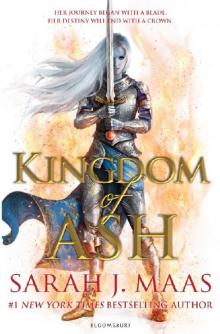 Kingdom of Ash
Kingdom of Ash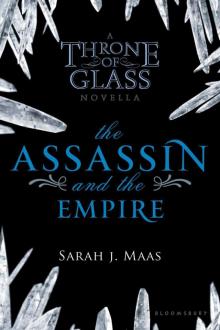 The Assassin and the Empire
The Assassin and the Empire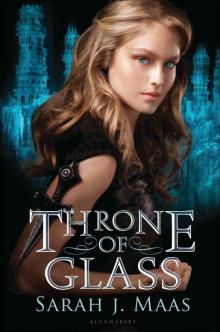 Throne of Glass
Throne of Glass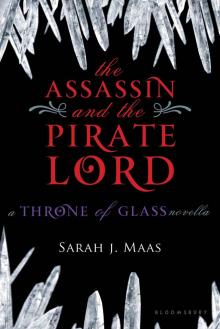 The Assassin and the Pirate Lord
The Assassin and the Pirate Lord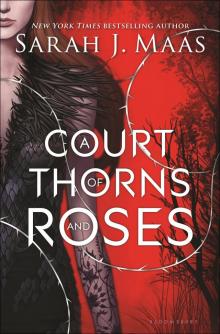 A Court of Thorns and Roses
A Court of Thorns and Roses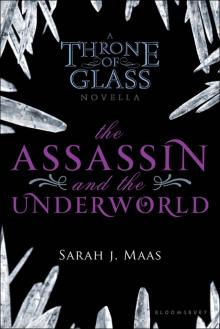 The Assassin and the Underworld
The Assassin and the Underworld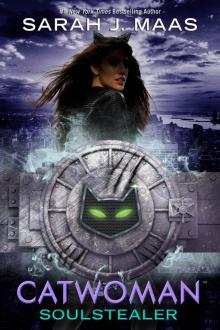 Catwoman: Soulstealer
Catwoman: Soulstealer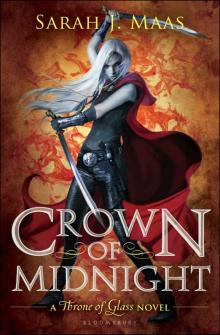 Crown of Midnight
Crown of Midnight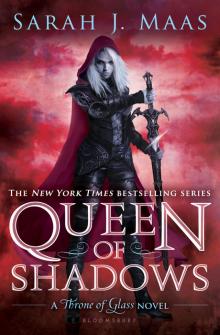 Queen of Shadows
Queen of Shadows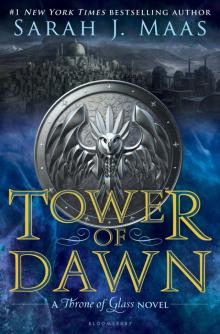 Tower of Dawn
Tower of Dawn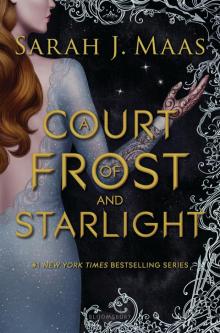 A Court of Frost and Starlight
A Court of Frost and Starlight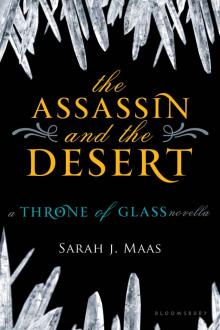 The Assassin and the Desert
The Assassin and the Desert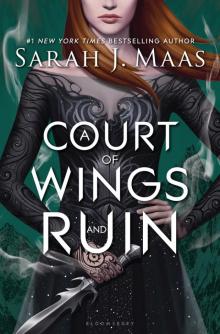 A Court of Wings and Ruin
A Court of Wings and Ruin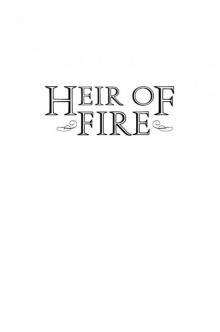 Heir of Fire
Heir of Fire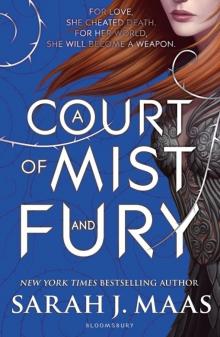 A Court of Mist and Fury
A Court of Mist and Fury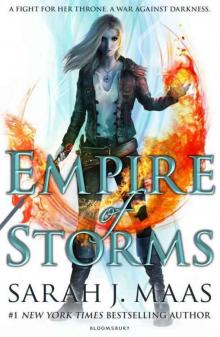 Empire of Storms
Empire of Storms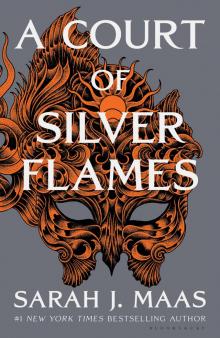 A Court of Silver Flames
A Court of Silver Flames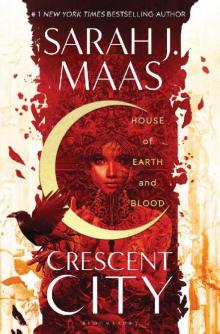 House of Earth and Blood (Crescent City)
House of Earth and Blood (Crescent City)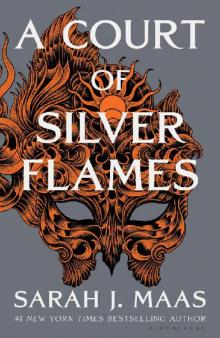 A Court of Silver Flames (A Court of Thorns and Roses)
A Court of Silver Flames (A Court of Thorns and Roses)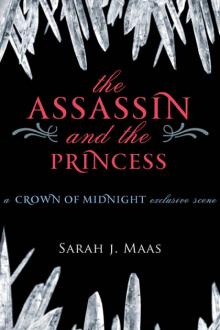 The Assassin and the Princess
The Assassin and the Princess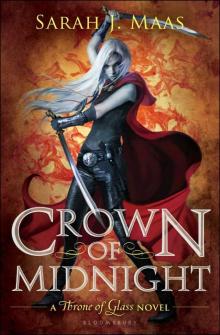 Crown of Midnight_Throne of Glass
Crown of Midnight_Throne of Glass The Assassin's Blade
The Assassin's Blade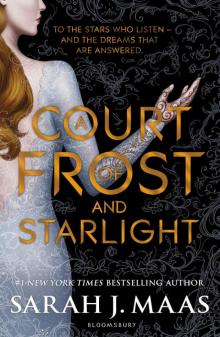 A Court of Frost and Starlight_A Court of Thorns and Roses
A Court of Frost and Starlight_A Court of Thorns and Roses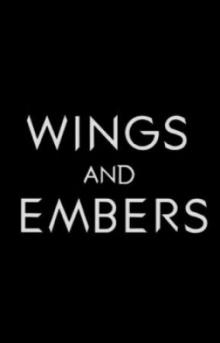 Wings and Embers
Wings and Embers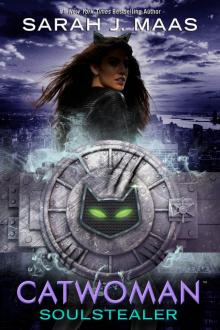 Catwoman
Catwoman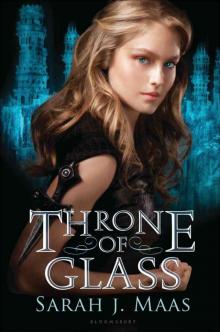 Throne of Glass tog-1
Throne of Glass tog-1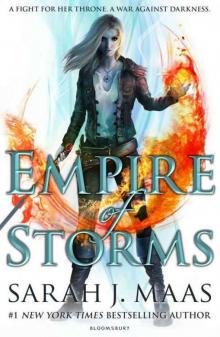 Empire of Storms (Throne of Glass)
Empire of Storms (Throne of Glass)